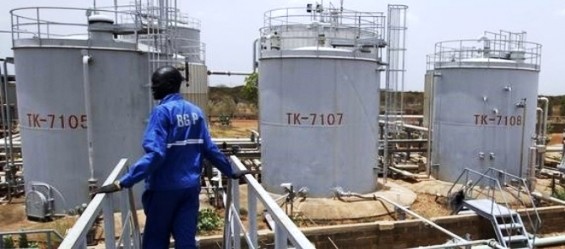Oil transit fees that Sudan government charges its neighbour South Sudan will be based on crude oil prices next year, Sudan’s energy minister said on Friday.
Sudan currently charges South Sudan about $24.50 on oil passing through its territory.
Speaking to Radio Tamazuj from Juba, Sudan’s new energy minister Adil Ali Ibrahim said they plan to move away from a fixed fee. “It is not good to agree on a fixed fee. It has to be determined by the prevailing crude oil prices so that South Sudan doesn’t run at loss when oil prices drop,” he said.
“The mistake happened when the politicians negotiated the oil deal,” he explained.
In 2013, South Sudan agreed under the terms of the 2012 deal to pay Sudan $9.10 per barrel for oil in addition to a fee of $15 per barrel in fulfillment of a $3.028 billion package called transitional financial arrangement (TFA). The TFA is meant to help Sudan cover the gap resulting from the loss of revenues due to secession of South Sudan from Sudan in 2011.
Adil pointed out that the Sudanese government will start reviewing oil agreements with South Sudan when the TFA deal comes to an end. “The TFA agreement will be fulfilled by the end of this year. South Sudan has already paid more than 2 billion,” he explained.
The Sudanese minister said they will help South Sudan to further increase its daily oil output, adding that the two countries agreed to increase technical and institutional cooperation on energy.
South Sudan has one of the largest reserves of crude in sub-Saharan Africa. It plans to increase output to more than 350,000 barrels of crude per day by the middle of 2020, up from 180,000 barrels per day currently, according to official figures.




